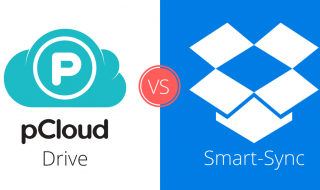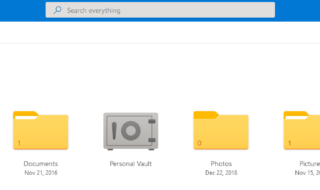The second decade of the 21st Century has brought about a paradigm shift in the way people and organizations work. With the Covid-19 Pandemic sweeping the globe, practically everyone has been affected. Today, remote work has become a necessity rather than a luxury for enterprises across the world. As a result, there is greater acceptance regarding storing enterprise data in Free Cloud Storage Solutions. However, doing so is not without risks, and as a company, sometimes the risks may outweigh the gains.
Contents
What are the risks of storing data with a free cloud storage solution provider?

While storing data with a free cloud storage solution provider can be highly cost-effective, you need to be aware of the risks in doing so. Some of these are:
1) Lack of control
Using a third-party solution to store your data may seem convenient, as you don’t need to manage data, since someone else does it for you. However, if your storage provider suffers from virus attacks, malware infections, or power outages, your data can be compromised.
2) Lack of data privacy
You would definitely like to control who can access sensitive company data. If your data is stored on-site, you can enforce a granular level of access control. However, in the cloud, you never know who may have access to your data, which is a severe risk for organizations.
3) Potential Leakage of Data
If you store all your data in servers in your own location, then you can ensure that nobody outside your company can get access to the data. However, you can never be 100% sure about the security measures that a cloud storage provider has taken to protect your data. A study found out that there is a hacking attempt on computers connected to the internet, once every 39 seconds. If you store your data with a cloud storage provider, there is a potential danger of data leakage, which may compromise your sensitive data.
What is a secure alternative to storing data in the cloud?
It makes good business sense to leverage on-premise file sharing solutions rather than store your mission-critical business data with a cloud storage solution provider. By doing so, you can get higher levels of security and control than what you’d get with an online storage provider.
Most enterprises have an existing on-premise IT infrastructure that they can use to store and access data online. On-premise file sharing benefits companies in more ways than one. Some of the benefits are:
1) Better data protection and privacy:
Cloud data storage solutions have a limited ability to safeguard your sensitive business data. Popular file sharing services such as Google Drive, Dropbox, and OneDrive are frequently the target of hacking attacks. However, with on-premise file sharing, you can store your sensitive data on your own servers giving you a better way to manage and control access to that data.
2) Extend your existing IT Infrastructure:
With on-premise file sharing, you can use the existing user identities, access control, and permissions that your IT department is already familiar with. No need to set up new user credentials, like you would have to if you go for a third party cloud storage solution provider.
3) Grant Mobile Access to your file servers
You can simplify remote access to your file servers by using on-premise file sharing solutions. Specifically, you can allow your remote users to access natively mapped drives using their familiar Windows Explorer and Mac Finder interfaces. What’s more, your users get the same user experience if they opt to remotely access your file servers using their Android or iOS devices or popular web browsers.
In summary:
When it comes to storing your data, it is always a better idea to choose on-premise file sharing solutions rather than depend on a popular cloud based storage provider. By doing so, you will ensure that your IT administrators and in turn your company’s management have better control over your company’s data. You can also ensure that your data is more secure in comparison to what you’d get with a cloud based data storage provider.



